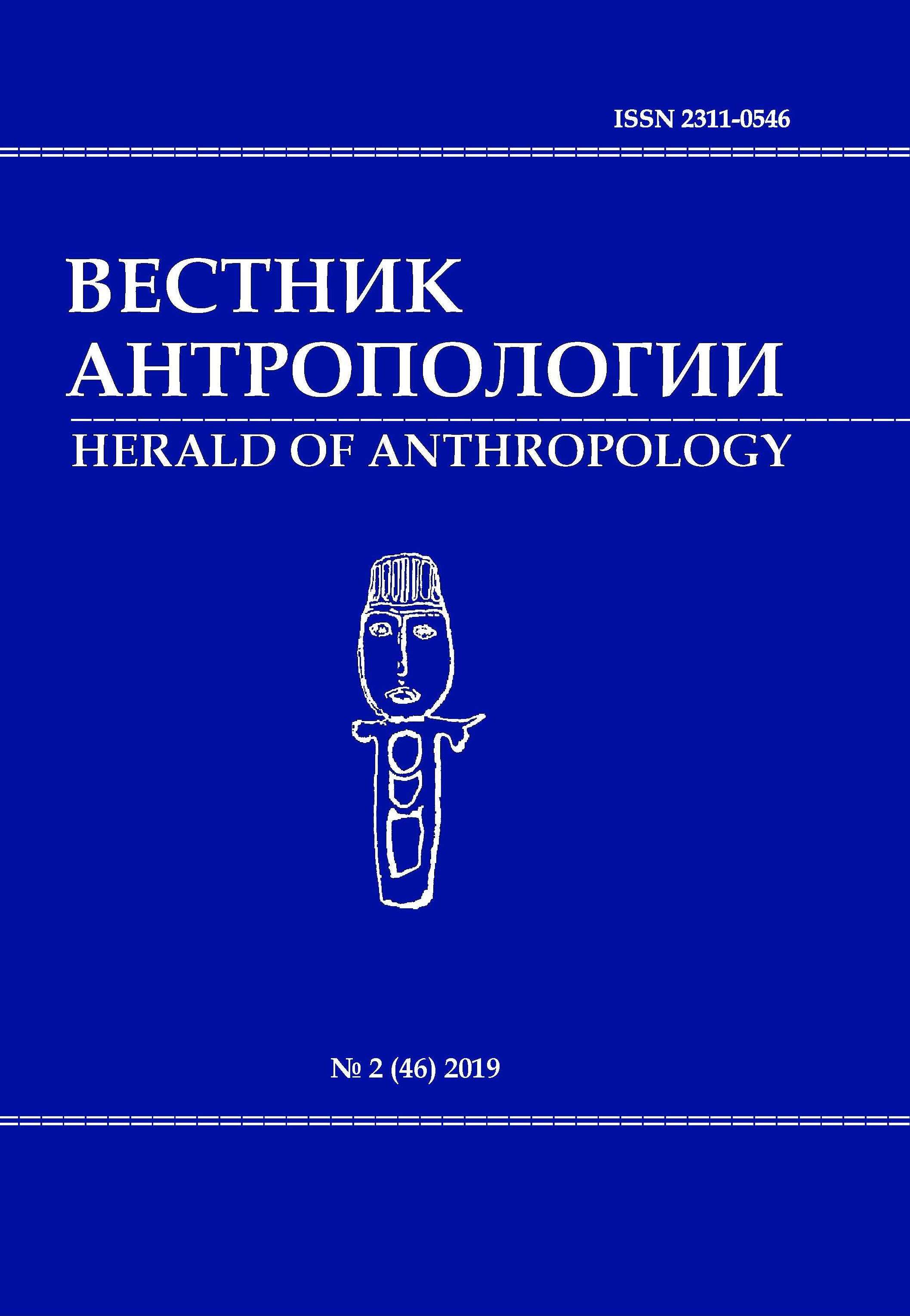Tatar Language Teaching in the Republic of Mordovia: Potential, Problems, Perspectives
Doi: 10.33876/2311-0546/2019-46-2/188-195
Keywords:
Republic of Mordovia, Tatars, Tatar language, ethno-cultural educationAbstract
The article analyses the development of the Tatar national school, including Tatar language teaching, in Soviet and Post-Soviet Mordovia. In the introductory part of the article it is explained that in the Middle Ages and the subsequent Imperial period of national history, the formation of Tatars (including on the territory of modern Mordovia) was mainly confessional, Muslim. This education was concentrated in schools of two levels - mektebah and madrasah, and was based on the Hanafi Math'hab (law school) of Sunni Islam. Further, it is concluded that in the first decades of the Soviet period the new, secular, system of national education of the Tatars developed, replacing the traditional religious (Muslim) school. The article provides an overview of formation of the Tatar national school in the Mordovian Autonomous Soviet Socialist Republic and its preservation in the Republic of Mordovia. The Soviet school system of education provided a fairly rapid increase in the literacy of the Tatars of Mordovia already in the late 1920s – 1930s, within the framework of the national school as well. As for the modern period, the special role of teaching Tatar is emphasized not only by the state authorities of the Republic of Mordovia, but also by the Regional National Cultural Autonomy of the Tatars “Yaktashlar” and by representatives of the state and public structures of Tatarstan. The article concludes that the system of Tatar national schools in Mordovia that developed during the Soviet period has adapted to new sociocultural and ethno-political Post-Soviet realities, and Tatar language teaching has not only been preserved there in the 1990s - 2010s, but continues to function effectively and to develop.
References
- Ablyazov, K.A. 2012. Istoricheskaya sudba tatar [The historical fate of the Tatars. Vol. II]. In Etnicheskaya mobilizatsiya i vozrojdeniye natzionalnoy gosudarstvennosti [Ethnic mobilization and the revival of national statehood]. Vol. II. Saratov, 2012.
- Avtaykin, I.A. 2004. Problemi natzionalnogo obrazovaniya v Respublike Mordoviya [Problems of national education in the Republic of Mordovia]. Uspehi sovremennogo estestvoznaniya 11: 47–48.
- Butilov, N.V. 1999. K probleme mordovsko-turkskih yazikovih kontaktov. Istoricheskiye i politicheskiye nauki v kontekste spvremennoy kulturnoy traditzii: sbornik statey [To the problem of Mordovian-Turkic language contacts. Historical and political sciences in the context of modern cultural tradition: collection of articles]. Saransk.
- Davidova, A. 2015. Perviy vipusk uchiteley tatarskogo yazika v Mordovskom ped’institute [The first graduation of Tatar language teachers in the Mordovian Pedagogical Institute]. Yuldash. 8 of July 2015.
- Dusha mordovskaya, yazik tatarskiy [Mordovian Soul, Tatar Language]. Izvestiya Mordoviyi. 18 fevralya 2010.
- Gabdrakhmanova, G.F., and L.V. Sagitova (eds). 2015. Gosudarstvenniye yaziki Respubliki Tatarstan: mnojestvennost izmereniy [State languages of the Republic of Tatarstan: the multiplicity of measurements]. Kazan.
- Koshina, O.V. 2007. Etnokonfessionalnaya situatziya na territoriyi Mordoviyi i eyo vliyaniye na razvitiye obrazovaniya vo vtoroy polovine XIX – – nachale ХХ veka. Sotzialno-demograficheskiye problemi Povoljya v etnicheskom izmereniyi: sbornik statey [Ethno-confessional situation on the territory of Mordovia and its influence on the development of education in the second half of the XIX – early XX centuries. Socio-demographic problems of the Volga region in the ethnic dimension: collection of articles], 224–227. Saransk.
- Martynenko, A.V., and N.V. Shilov. 2008. N.V. Respublika Mordoviya. Natzionalno-kulturnaya avtonomiya tatar: potentzial, problemi, perspektivi. Etnokonfessionalnaya situatziya v Privoljskom federalnom okruge. Bulleten Seti etnologicheskogo monitoring ii rannego preduprejdeniya konfliktov Instituta etnologii ii antropologii Rossiyskoy Akademii nauk [The Republic of Mordovia. National-cultural autonomy of Tatars: potential, problems, prospects]. In Etnokonfessionalnaya situatziya v Privoljskom federalnom okruge. Bulleten Seti etnologicheskogo monitoring ii rannego preduprejdeniya konfliktov Instituta etnologii ii antropologii Rossiyskoy Akademii nauk 138: 19–22.
- Muhamedova, R.G. 1985. Tatari. Narodi Povoljya i Priuralya. Istoriko-etnograficheskiye ocherki [Tatars. Nations of Volga Region and Ural. Historical and ethnographic essays], 200–236. Moscow.
- Nikitina, T. 2016. Predstaviteli Tatarstana blagodarni rukovodstvu Mordoviyi za sohraneniye tatarskih shkol [Representatives of Tatarstan are grateful to the leadership of Mordovia for the preservation of Tatar schools], 6. Izvestiya Mordoviyi. Newspaper. 2016. 29 of November.
- Osovsky, E.G. (ed.). 2001. Ocherki istoriyi obrazovaniya i pedagogicheskoy misli v Mordovskom kraye (seredina XVI – – nachalo XX veka). [Essays on the history of education and pedagogical thought in Mordovia (mid XVI – early XX century]. Saransk.
- Paramonova, I.V. 2014. Mordovia: statisticheskiy ejegodnik Territorialnogo organa Federalnoy sluzbi gosudarstvennoy statistiki po Respublike Mordovia [Mordovia: Statistical Yearbook of the Territorial Department of the Federal State Statistics Service for the Republic of Mordovia]. Saransk.
- Tatari Mordoviyi ne teryayut svyazi s istokami svoih natzionalnih traditziy! Stolitza S. [Tatars of Mordovia do not lose touch with the origins of their national traditions! The Capital S. Newspaper]. 11 December 2018. https://stolica-s.su/news/society/170607.
- Tishkov, V.A. 2005. Etnologiya i politika [Ethnology and politics]. Moscow.
- Tishkov, V.A., and Y.P. Shabayev. 2013. Y.P. Etnopolitologiya. Politicheskiye funktziyi etnichnosti [Ethnopolitology. Political functions of ethnicity]. Moscow.
- Yusupov, R.R. 2009. Sotzialno-ekonomicheskoe i sotziokulturnoye tatar-misharey v period modernizatziyi v kontze 1920–1930-е gody [Socio-economic and socio-cultural development of the Tatar-Mishars of Mordovia during the Soviet modernization in the late 1920s – 1930s]. Dissertatziya kandidata istoricheskih nauk. Saransk.





















